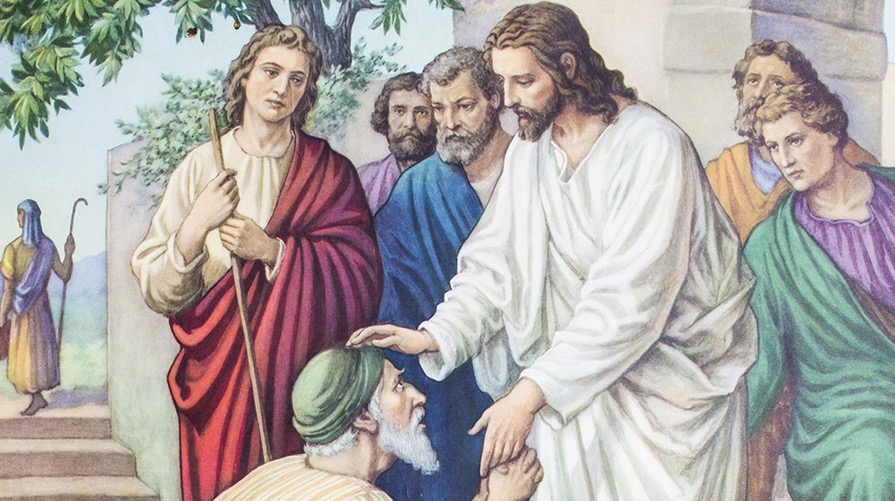It has always puzzled me, in the Gospels, to find Jesus urging secrecy upon those He has healed.
On the other hand, it never surprises me that the beneficiaries of his favor, like the two blind men in Matthew, ignore him and go off telling everyone about the wonderful thing that has happened to them. Their behavior seems wholly human, doesn’t it? It strikes me that Jesus was asking a lot of these men — to return to their families and friends with perfect sight and no explanation of how this had come about.
Jesus does it again, in the Gospel of Mark, when He heals a deaf man, and said to him, “Ephphatha!” (“Be opened!”). Immediately, the man’s ears were opened, his speech impediment was removed, and he spoke plainly. Jesus ordered them not to tell anyone. But the more He ordered them not to, the more they proclaimed it.
This time He orders not just the object of His healing, but the people with Him, to keep quiet about His miraculous favor. In fact, the text suggests that Jesus several times asked them to pipe down about it, but to no avail.
When something great has happened in our lives, we want to share it with others, and this Jesus acknowledged in Luke’s Gospel, when He spoke about the woman who had lost her coin: “Or what woman having ten coins and losing one would not light a lamp and sweep the house, searching carefully until she finds it? And when she does find it, she calls together her friends and neighbors and says to them, ‘Rejoice with me because I have found the coin that I lost’” (Lk 15:8-9).
This makes more sense. Something lost and then found is worth exclaiming over, and we are called to be witnesses to the Good News — to tell the great workings of God in our lives.
A few months ago, I made a general confession. It took over three hours, during which time I experienced such an abundance of genuine healing — at one point, I could literally feel a heaviness that had resided upon my chest for decades simply depart — that I urged anyone who would listen to do the same. I had swept my house and discovered something I had lost, and I wanted everyone to “rejoice with me.” Jesus would understand my behavior.
For that matter, Jesus himself acknowledged that keeping secrets is eventually a futile undertaking: “For there is nothing hidden that will not become visible, and nothing secret that will not be known and come to light” (Lk 8:17).
Perhaps the first chapter of Mark sheds some light on Jesus’ reticence; Jesus heals a leper, and urges him to tell no one, but to show himself to the priests. The leper spread the report abroad so that it was impossible for Jesus to enter a town openly. He remained outside, in deserted places, and people kept coming to Him from everywhere.
There it is.
We’ve read stories of lottery winners who find themselves besieged by long-lost friends and family members seeking to benefit from the windfall. Those they help often come back for more assistance — all expectation, with little appreciation.
The “lucky” winner begins to feel like little more than a walking ATM, his humanity undervalued, his personhood no longer seen by people who have become blind to everything but what he can provide, until the cash runs out.
Jesus’ healing gifts could never run out, but perhaps He was trying to prevent needy crowds from seeing Him only as a means to an immediate end, devaluing His humanity and completely missing His message. Such behavior kept Jesus from entering “a town openly. He remained outside” (Mk 1:45).
Urging people to tell no one was a futile wish on Jesus’ part. He knew humanity too well to count on it. All He wanted, though, was to be able to walk openly among the people He meant to redeem, and to not be forced to remain outside, away from us.
A need for secrecy is past. Let us bring Jesus openly into our cities and towns and families, telling what He has done for us.

